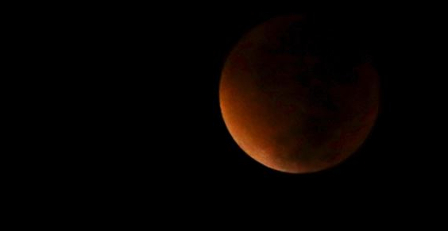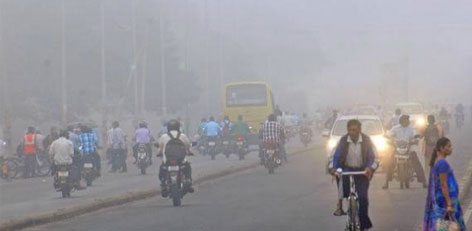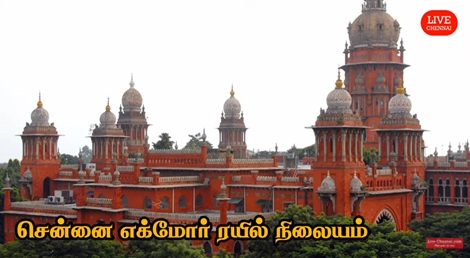Details of the Lunar Eclipse occurring today (16th July)
Posted on: 16/Jul/2019 10:09:11 AM

A partial lunar eclipse is set to occur on today (Tuesday, July 16, 2019) and this will be visible in South America, Europe, Africa, Asia and Australia.
As per NASA, which has listed out all eclipses till 2100, the partial lunar eclipse will also be visible in parts of India.
The last total lunar eclipse occurred on 21st January 2019 and the next total lunar eclipse will be visible on May 26, 2021. There will be penumbral eclipses till then, though these are not total or partial lunar eclipses.
What is a partial lunar eclipse? How does it occur?
An eclipse takes place when the Sun, Moon and Earth are aligned in a line. During a solar eclipse, the Moon comes between the Earth and the Sun and casts a shadow. During a lunar eclipse, the Earth comes between the path of the Moon and the Sun and casts a shadow on its satellite.
As NASA has noted in its website, lunar eclipses only take place at the full moon and a total lunar eclipse is very rare as it can only happen when the Sun, Earth and Moon are perfectly aligned. In case of a partial lunar eclipse, which is taking place on July 16, only a part of the Moon comes under Earth�s shadow.
In a partial eclipse, Earth�s shadow appears very dark on the side of the Moon facing Earth, explains NASA on its website. Only a part of Earth�s shadow appears on the Moon and because this is a not a total lunar eclipse, the Moon will not have the blood red effect. So this is not a blood moon either.
As per NASA, at least two partial lunar eclipses happen every year, but total lunar eclipses are very rare. A lunar eclipse can last for a few hours.
What is the timing for the partial lunar eclipse on July 16?
According to the NASA website, the eclipse will last around two hours and 58 minutes. The eclipse will start at 1843 GMT, which is around 12.15 am on July 17 in India. The maximum eclipse will be at 2130 GMT or nearly 3.00 am for India time. The eclipse ends at 0017 GMT or nearly 5.30 am in the morning for India.
Is it safe to look at a lunar eclipse?
Yes, NASA says it is perfectly safe to look at a lunar eclipse directly with your eyes. Lunar eclipses, unlike solar eclipses, cannot damage your vision or anything else in your life. Any other superstitions associated with lunar eclipses should also be ignored.







